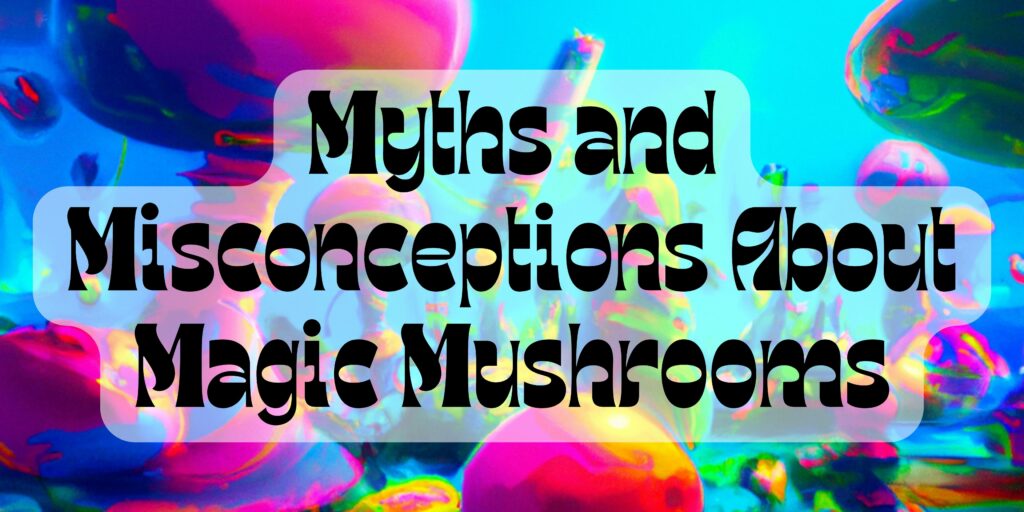Are you curious about the effects of psilocybin mushrooms and worried about their potential dangers? You’re not alone. As the popularity of shrooms increases, so does the concern for their safety. In this article, we will delve into the topic of whether or not shrooms can be deadly and address any lingering doubts or fears you may have.
What Are Shrooms?
Shrooms, also known as “magic mushrooms,” are a type of fungi that contain a compound called psilocybin. This compound is responsible for the psychoactive properties of shrooms, which can produce hallucinogenic effects when consumed. Shrooms have a long history of being used in spiritual and cultural practices, and are known for their ability to alter perception, induce euphoria, and enhance creativity. However, it is important to be aware of the potential risks and side effects of shrooms, including anxiety, paranoia, and the potential for dangerous behavior. It is highly recommended to approach shrooms with caution and in a safe environment, and to educate oneself on their effects and potential risks before considering use.
How Do Shrooms Work?
Magic mushrooms, also known as shrooms, contain a psychoactive compound called psilocybin. Understanding how shrooms work involves considering their effects on the brain. Here are the steps involved:
- Ingestion: Shrooms are typically consumed orally, either by eating them directly or in various forms such as capsules, tea, or added to food.
- Metabolism: Once ingested, the body metabolizes psilocybin into psilocin, which is responsible for the hallucinogenic effects.
- Binding to receptors: Psilocin binds to serotonin receptors in the brain, particularly in the prefrontal cortex, resulting in altered perception, mood, and cognition.
- Neurotransmitter activity: Psilocin affects serotonin levels in the brain, leading to increased serotonin activity and changes in neural connections.
- Effects: These alterations in brain activity can result in hallucinations, sensory distortion, euphoria, and altered sense of time and self.
Understanding the process of how shrooms work is crucial for individuals considering their use, as it helps to comprehend the potential effects and risks involved.
Can Shrooms Kill You?
While consuming mushrooms can have potentially dangerous effects, fatal outcomes are extremely rare. The risk of death from consuming mushrooms largely depends on the type of mushroom ingested. Certain species, such as the Death Cap or Destroying Angel, can be deadly if consumed. However, most wild mushrooms are not lethal. To ensure safety, it is crucial to accurately identify and properly prepare mushrooms. If you are unsure about a mushroom’s edibility, it is best to avoid consumption altogether. Always consult an expert or mycologist before foraging and consuming wild mushrooms.
In history, the death of Roman Emperor Claudius is often attributed to mushroom poisoning. According to accounts, his wife, Agrippina, served him a meal with mushrooms containing lethal toxins, leading to his demise.
What Are the Potential Dangers of Shrooms?
When considering the potential dangers of shrooms, it is crucial to be aware of the risks involved. While shrooms can have psychedelic effects and be used for recreational purposes, they also come with potential risks. These risks include the possibility of experiencing a “bad trip,” which can lead to feelings of anxiety, paranoia, and even psychological distress. In addition, shrooms can also cause physical effects such as nausea, increased heart rate, and dilated pupils. It is essential to approach the use of shrooms with caution, take appropriate precautions, and seek medical assistance if experiencing any negative effects.
Can You Overdose on Shrooms?
While it is possible to overdose on shrooms, it is extremely rare and typically requires consuming a large amount. The main component in shrooms, psilocybin, is not considered toxic or lethal. However, taking a high dose can lead to intense and potentially dangerous experiences. Symptoms of a shroom overdose may include severe anxiety, paranoia, and hallucinations. It is crucial to seek medical attention if someone experiences a shroom overdose.
To stay safe while using shrooms, it is important to start with a low dose, be in a comfortable setting, and have a trusted person present.
What Are the Symptoms of a Shroom Overdose?
The symptoms of a shroom overdose can vary depending on factors such as dosage, individual sensitivity, and the presence of other substances. Common symptoms include intense hallucinations, confusion, anxiety, paranoia, panic attacks, and a distorted sense of time and reality. Physical symptoms may include increased heart rate, high blood pressure, dizziness, nausea, vomiting, and sweating. In severe cases, a shroom overdose can lead to seizures, loss of consciousness, and potentially life-threatening complications. If someone is experiencing these symptoms, it is important to seek medical attention immediately.
In 2016, four college students in Australia consumed a large quantity of magic mushrooms, resulting in severe hallucinations, paranoia, and panic attacks. One of the students mistakenly jumped off a balcony, thinking it was a pool. Fortunately, all of them survived, but this incident serves as a reminder of the dangers of shroom overdose and the importance of responsible consumption of these substances.
Just like a bad ex, shroom use can leave you with long-term effects that you’ll wish you could forget.
What Are the Long-Term Effects of Shroom Use?
The long-term effects of shroom use can vary among individuals, but research suggests that there may be potential psychological effects. Depending on individual experiences and mental health, these effects can be either positive or negative, resulting in changes in perception, mood, and cognition.
One study even found that the active compound in shrooms, psilocybin, decreased depression and anxiety in cancer patients. However, it is important to use shrooms responsibly and in a controlled environment to minimize any potential risks. By understanding the long-term effects, individuals can make informed decisions about their use of shrooms.
Can Shrooms Cause Permanent Brain Damage?
Shrooms, also known as psilocybin mushrooms, have been found to not cause any permanent brain damage. Studies have shown that the psychedelic effects of shrooms are temporary and do not lead to long-term cognitive impairment. However, it is important to keep in mind that shrooms can have intense psychological effects and may trigger underlying mental health conditions. Therefore, it is crucial to use them in a safe and controlled environment and avoid excessive doses. If someone has a negative experience or suffers from adverse effects while using shrooms, it is recommended to seek medical or professional help. In fact, research suggests that shrooms may have potential therapeutic benefits for mental health conditions such as depression and anxiety.
Can Shrooms Cause Mental Health Issues?
Using shrooms can potentially lead to mental health issues, although the exact relationship is still being studied. Some studies suggest a link between shroom use and conditions like depression, anxiety, and psychosis. It’s important to note that individual susceptibility and dosage play a role in determining the likelihood of experiencing mental health issues. If you have a history of mental health problems or are at risk, it’s advisable to avoid using shrooms. If you or someone you know experiences negative effects after using shrooms, seek medical help and consider reaching out to a mental health professional.
When it comes to bad trips on shrooms, remember: just because you’re seeing unicorns doesn’t mean they’re real.
What Should You Do If Someone Is Experiencing a Bad Trip on Shrooms?
If someone is experiencing a bad trip on shrooms, it’s crucial to remain calm and take appropriate actions to ensure their safety and well-being. Here are some steps you can follow:
- Stay with them: Provide reassurance and let them know they are not alone.
- Create a safe environment: Remove any potential hazards and make sure they are in a comfortable setting.
- Offer water and snacks: Hydration and a small snack can help stabilize their physical state.
- Distract and redirect: Engage them in a different activity or conversation to divert their attention.
- Seek professional help if necessary: If the situation becomes severe or uncontrollable, contact medical professionals immediately.
Remember, the well-being of the individual should be the top priority when dealing with a bad trip on shrooms.
How Can You Stay Safe While Using Shrooms?
If you are planning to use shrooms, it is crucial to prioritize safety to ensure a positive experience and prevent any potential harm. Here are some steps you can take to stay safe:
- Research: Educate yourself about the effects, dosage, and potential risks of consuming shrooms.
- Source: Obtain shrooms from reputable and trustworthy suppliers to ensure their quality and purity.
- Set and Setting: Choose a comfortable and familiar environment, surround yourself with trusted individuals, and create a positive mindset before consuming shrooms.
- Start with a low dose: Begin with a small amount to gauge your body’s reaction and sensitivity.
- Stay hydrated: Drink enough water throughout the experience to avoid dehydration.
- Have a trip sitter: It is advisable to have a sober friend present to provide support and assistance if needed.
- Be prepared: Have a plan in case of any unexpected or challenging experiences, such as engaging in calming activities or seeking professional help if necessary.
What Precautions Should You Take Before Using Shrooms?
Before using shrooms, it is crucial to take certain precautions in order to have a safe and positive experience. Here are some key precautions to consider:
- Research: Educate yourself about the effects, potential risks, and recommended dosage guidelines of shrooms.
- Set and Setting: Choose a comfortable and familiar environment where you feel safe and at ease.
- Trip Sitter: It is advisable to have a trusted friend or experienced individual present to provide support and assistance if needed.
- Start with a low dose: Begin with a small amount to gauge your sensitivity and reaction to the substance.
- Avoid mixing substances: It is important to not combine shrooms with alcohol or other drugs as it can increase the risks and unpredictability of the experience.
- Check your mental state: Before using shrooms, make sure you are in a stable emotional and psychological state as it can amplify existing feelings or thoughts.
- Stay hydrated and nourished: To support your body during the trip, remember to drink plenty of water and have a balanced meal before consuming shrooms.
By following these precautions, you can minimize potential risks and promote a safe and enjoyable shroom experience.
What Should You Do If You or Someone You Know Is Experiencing Negative Effects from Shrooms?
If you or someone you know is experiencing negative effects from shrooms, it is important to take immediate action. Here are some steps you can take:
- Stay calm and reassure the person: Provide emotional support and let them know that you are there for them.
- Create a safe environment: Remove any potential hazards and ensure that the person feels secure.
- Seek medical help: If the person is in distress or experiencing severe symptoms, call emergency services or take them to the nearest healthcare facility.
- Stay with the person: Offer comfort and continuously monitor their condition until professional help arrives.
- Avoid judgment or blame: Remember that shroom experiences can be unpredictable, and offering understanding and empathy is crucial.
In 1957, a Swiss chemist named Albert Hofmann accidentally ingested a small amount of LSD, a substance derived from a fungus called ergot. This accidental exposure led to the discovery of the hallucinogenic effects of LSD, which greatly influenced the psychedelic movement of the 1960s. Hofmann’s accidental trip paved the way for further research on hallucinogenic substances and their potential benefits and risks.
Frequently Asked Questions
Can shrooms really kill you?
Yes, shrooms (also known as magic mushrooms) can potentially be deadly, especially if ingested in large quantities or if they are the wrong type of mushroom. It is important to properly identify and consume only safe varieties of mushrooms.
What makes shrooms dangerous?
Shrooms contain a compound called psilocybin, which can cause significant changes in brain activity and behavior. In high doses, it can lead to dangerous physical and psychological effects such as extreme confusion, panic, and even potentially fatal reactions.
How many shrooms does it take to kill you?
The exact number of shrooms that can be deadly varies depending on the individual’s weight, tolerance, and the potency of the mushrooms. However, as little as 0.2-0.5 grams of dried shrooms can be lethal for some people.
What are the signs of a shroom overdose?
Symptoms of a shroom overdose can include intense hallucinations, extreme anxiety, paranoia, numbness, and loss of coordination. In severe cases, an overdose can lead to seizures, coma, or even death.
Can you die from eating poisonous mushrooms by mistake?
Yes, eating poisonous mushrooms by mistake can result in serious illness or even death. It is important to always properly identify mushrooms before consuming them and to avoid consuming any wild mushrooms without expert guidance.
What should I do if someone has consumed poisonous mushrooms?
If someone has consumed potentially poisonous mushrooms, seek medical attention immediately. Do not attempt to induce vomiting unless directed by a medical professional. If possible, bring a sample of the mushrooms or a photo for identification.




